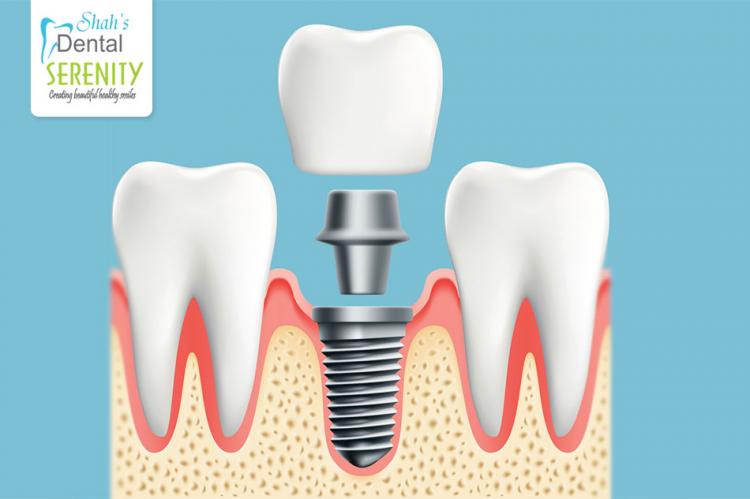Smile Confidently Again: The Ultimate Guide to Dental Implants
Are you tired of hiding your smile behind closed lips? Dental implants might just be the solution you’ve been searching for. Dental implants are artificial teeth roots made from titanium that are surgically positioned into your jawbone to hold a replacement tooth or bridge. They are a long-lasting and effective option for those who have lost one or more teeth due to injury, periodontal disease, or other reasons.
In this guide, we’ll cover everything you need to know about dental implants, including what they are, the benefits they offer, the process of getting them, and how to care for them. We’ll also explore who is a good candidate for dental implants, potential risks and complications, and costs and insurance coverage options. By the end, you’ll have all the information you need to smile with confidence once again. So, let’s get started!
What are dental implants?
Are you tired of hiding your smile due to missing teeth? Dental implants might just be the solution you’ve been looking for.
Dental implants are artificial tooth roots made of titanium that are surgically placed into the jawbone to support a replacement tooth or bridge. The procedure has been in use for over 30 years and has a success rate of over 95%.
There are different types of dental implants depending on your individual need. Endosteal implants are the most commonly used and involve placing the implant directly into the jawbone. Subperiosteal implants are placed under the gum but above the jawbone and are ideal for patients who don’t have enough healthy jawbone to support an endosteal implant.
Apart from looking natural and improving the appearance of your smile, dental implants come with numerous benefits. They are strong and durable and can last up to 25 years if properly cared for. Unlike dentures, implants are comfortable, don’t slip or move around in the mouth, and allow you to chew and speak normally. They also prevent bone loss and the shifting of teeth that can result from missing teeth.
Whether you’re missing one tooth or several, dental implants are a long-term solution for a confident smile. So say goodbye to hiding your smile and hello to a brighter future with dental implants!
Who is a good candidate for dental implants?
Are you considering dental implants as a solution to your missing or damaged teeth? While dental implants can be a great choice for many people, there are some important factors that your dentist will consider when determining if you’re a good candidate.
First of all, it’s essential to have healthy gums and a strong jawbone to support the implant. If you have gum disease or bone loss, your dentist may need to address these issues before moving forward with the implant surgery.
Additionally, certain pre-existing medical conditions can affect the success of the implant, such as diabetes or heart disease. Your dentist will take your overall health into consideration when determining if you’re a good candidate.
Age is also a factor to consider, as younger patients may still be experiencing jawbone growth that could affect the success of the implant. However, age alone isn’t a disqualifying factor for dental implants, and many older patients can still benefit from the procedure.
Before moving forward with dental implants, it’s essential to have a thorough consultation with your dentist to discuss your specific needs and candidacy. By considering these factors, you can feel confident that dental implants are the right choice for your smile restoration needs.
The dental implant process
Consultation with a dentist is the first step in the dental implant process. During this initial appointment, your dentist will evaluate your dental health and determine if you are a good candidate for the procedure. They will also discuss the different types of dental implants and help you choose the best option for your specific case.
Once you have decided to move forward with dental implants, there are several steps involved in the procedure. Before the surgery, your dentist may take x-rays and impressions of your teeth to create a model of your mouth. This will allow them to plan the exact placement of the implant.
During the surgery, the dentist will place the implant directly into your jawbone. This can be done using local anesthesia, so you won’t feel any pain during the procedure. The dental implant will then be left to heal and integrate with your jawbone in a process called osseointegration.
This healing process can take several months, but it is important for the long-term success of the implant. Once the implant has fully fused with your jawbone, your dentist will place an abutment on top of the implant. This will act as a connector between the implant and the final restoration.
Finally, your dentist will place a crown or bridge on top of the abutment. This restoration will be custom-made to match your existing teeth, ensuring that your dental implant looks and functions just like a natural tooth.
Overall, the dental implant process can take several months to complete, but it is a worthwhile investment in your dental health. With proper care, dental implants can last a lifetime, giving you the confidence to smile and speak confidently again.
How to care for dental implants
So, you got dental implants and now you’re wondering how to take care of them? Well, you’re in luck because we’ve got you covered. Proper dental hygiene is key to ensuring your implants last as long as possible. Make sure to brush twice a day and floss daily to keep bacteria at bay. And please, don’t be one of those people who forget to brush their teeth before bed. Your implants will thank you for it.
Regular dental check-ups are also important to monitor the health of your implants. Your dentist will check for any signs of infection or damage, and address any concerns you might have. Plus, it’s always nice to have a professional cleaning every once in a while.
Lastly, it’s important to avoid damaging habits that can take a toll on your implants. This includes things like biting your nails, chewing ice, or using your teeth as tools. Remember, dental implants may be tough, but they’re not indestructible. So take care of them, and they’ll take care of you.
Potential risks and complications
Dental implant surgery is generally considered safe, but as with any medical procedure, there are potential risks and complications to be aware of. Infection is a possible risk, but can be mitigated with proper post-surgery care. Nerve damage could occur during surgery, but is relatively rare. Implant failure is also possible, but this is typically due to poor oral hygiene or inadequate bone density. It’s important to discuss any concerns with your dentist to ensure you’re fully informed before deciding to proceed with the procedure.
Costs and insurance coverage
Let’s talk about costs and insurance coverage. The average cost of a dental implant can range from $1,000 to $5,000 per tooth, depending on several factors. One of these factors is the type of implant needed, as there are different options available. Other factors include the location of the dental office, the experience of the dentist, and any extra procedures required, such as bone grafting.
Apart from these factors, insurance coverage for dental implants can also vary. While some insurance plans cover the entire cost of the implant, others may only provide coverage for a portion of the procedure. It’s essential to review your insurance policy carefully and talk to your dentist about available payment options before moving forward with the procedure.
Remember, although the upfront cost of dental implants may seem steep, they’re a long-term investment in your oral health and overall quality of life. So don’t let cost deter you from achieving that winning smile.
Conclusion
Remember, dental implants are a fantastic solution for those in need of teeth replacements that will last a lifetime. From the initial consultation to routine check-ups, they require special care, but the security and confidence they provide are priceless.






